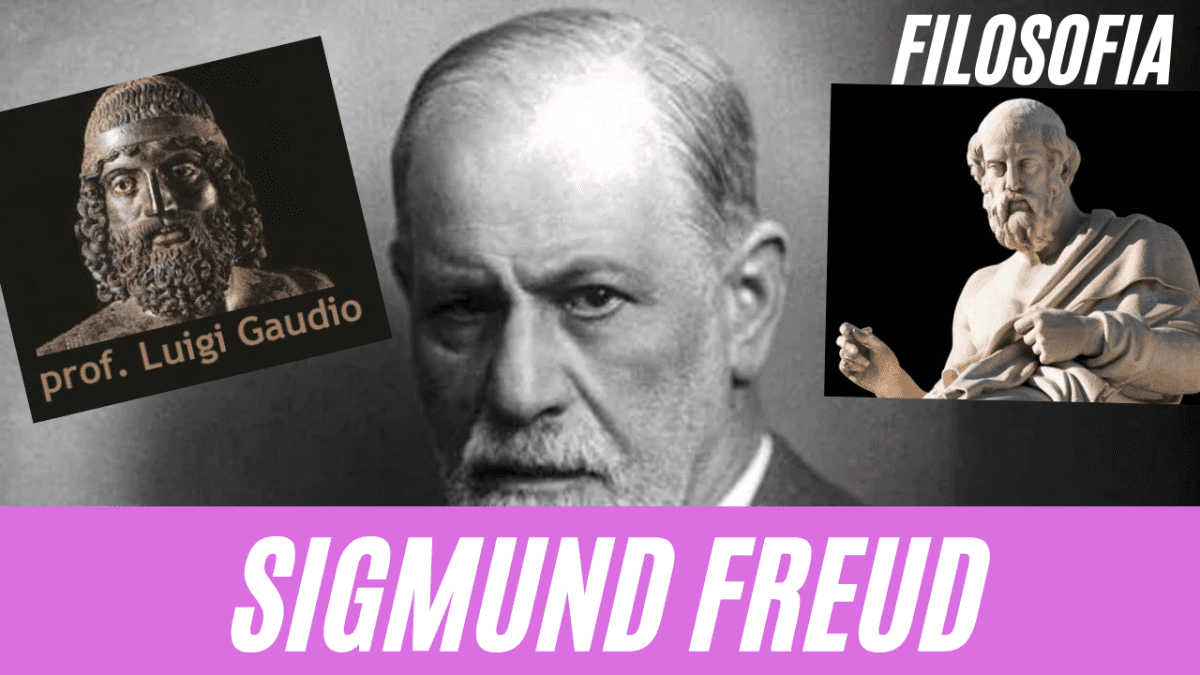
Volontariato
27 Gennaio 2019
Confronto tra Il principe e i Discorsi sopra la prima deca di Tito Livio
27 Gennaio 2019Sigmund Freud is a central figure in the history of psychology and psychiatry.
His theories, collectively known as psychoanalysis, revolutionized the understanding of the human mind, profoundly influencing the culture, art, and society of the 20th century.
The Foundations of Freudian Psychoanalysis
Freud postulated the existence of the unconscious, a part of the mind inaccessible to consciousness, which harbors repressed desires, impulses, and memories. According to Freud, these unconscious elements significantly influence our behavior and psychological well-being.
Freud’s Iceberg Theory
Freud often used the analogy of an iceberg to illustrate the structure of the human mind. The visible part of the iceberg represents consciousness, while the submerged part represents the unconscious.
The Structures of Personality
According to Freud, personality consists of three fundamental components:
- Id: Represents the most primitive and instinctive part of the personality, driven by the pleasure principle and oriented toward immediate gratification of needs.
- Ego: The rational part of the personality that mediates between the demands of the Id, the Superego, and external reality.
- Superego: Represents moral conscience, internalized through education and social norms.
Freud’s Personality Structure
Defense Mechanisms
To protect itself from anxieties and unconscious conflicts, the Ego employs various defense mechanisms, such as:
- Repression: Pushing unacceptable thoughts, memories, or desires into the unconscious.
- Projection: Attributing one’s unacceptable impulses to others.
- Sublimation: Channeling instinctive impulses into socially acceptable activities.
- Rationalization: Finding rational explanations for behaviors driven by unconscious impulses.
Psychosexual Development
Freud developed a theory of psychosexual development, suggesting that personality is formed during childhood through a series of stages related to erogenous zones:
- Oral stage: Pleasure linked to the mouth (sucking, biting).
- Anal stage: Pleasure linked to defecation and sphincter control.
- Phallic stage: Pleasure linked to the genitals and the Oedipus complex.
- Latency stage: A calm period for sexual impulses.
- Genital stage: Sexual maturity.
Freud’s Psychosexual Stages
The Interpretation of Dreams
Freud considered dreams the “royal road to the unconscious.” Through dream analysis, the psychoanalyst could access repressed material and understand the patient’s inner conflicts.
The Oedipus Complex
The Oedipus complex is one of the most famous concepts of Freudian psychoanalysis. It derives its name from Sophocles’ Greek tragedy, in which Oedipus, unknowingly, kills his father and marries his mother. According to Freud, all children go through a phase of intense attachment to the parent of the opposite sex and rivalry with the same-sex parent.
- Phallic stage: The Oedipus complex typically manifests during the phallic stage of psychosexual development, around ages 3–6.
- Resolution: Resolution occurs through identification with the same-sex parent and renunciation of incestuous impulses.
Transference and Countertransference
- Transference: The phenomenon where the patient projects feelings, desires, and expectations originally directed toward significant figures from their childhood (often the parents) onto the therapist. This may manifest as idealized attachment, hostility, or ambivalent feelings.
- Countertransference: The emotional reaction of the therapist to the patient. This can include feelings of sympathy, antipathy, admiration, anger, or other intense emotions. If not properly managed, countertransference can interfere with therapy.
Criticisms of Psychoanalysis
Psychoanalysis has faced numerous criticisms since its inception. The main critiques include:
- Lack of scientific rigor: Many argue that psychoanalysis is not a science, as its theories are difficult to empirically verify.
- Determinism: Psychoanalysis has been accused of being overly deterministic, underestimating free will and individual choice.
- Excessive focus on sexuality: Some critics have contested Freud’s emphasis on sexuality as the primary driver of human behavior.
- Cultural specificity: Freud’s theories largely reflect the Victorian culture in which he lived and may not be universally applicable.
The Impact of Psychoanalysis on Popular Culture
Psychoanalysis has profoundly influenced popular culture, affecting:
- Literature: Many writers have incorporated Freudian concepts into their works, exploring unconscious mechanisms and inner conflicts in their characters.
- Cinema: Films often depict psychoanalytic themes such as dreams, phobias, and personality disorders.
- Advertising: Advertisers have utilized Freudian psychological mechanisms to influence consumer behavior.
Movie Poster Referencing Psychoanalysis
Comparison Between Freud and Other Psychologists
Freud was the founder of psychoanalysis, but numerous psychologists have developed alternative theories or integrated his concepts with other approaches. Key figures include:
- Carl Gustav Jung: Developed analytical psychology, emphasizing the collective unconscious and archetypes.
- Alfred Adler: Founded individual psychology, highlighting the role of inferiority and compensation in personality development.
- Erik Erikson: Formulated a theory of psychosocial development that integrates psychoanalytic aspects with social and cultural factors.
Comparison Chart Between Freud, Jung, and Adler
Freud’s Legacy
Freud’s theories have had a profound impact on culture and society, influencing art, literature, philosophy, and psychology. Despite criticism and subsequent revisions, his ideas continue to be studied and debated.
Appunti e approfondimenti su Freud su questo sito atuttascuola©
-
Sigmund Freud, il padre della Psicoanalisi di atuttascuola©
-
Il ruolo di Cosmo e di Caos nella natura umana in pdf su Galilei, La quantistica, La probabilità, Heisenberg, Orwell (1984), Seurat, Marx, Nietzsche, Pirandello, Freud e Petronio – di Gabriele De Luca (classe VaD) di Miriam Gaudio
-
Tesi e antitesi da Kant a Freud di atuttascuola©
-
FREUD – Introduzione di Miriam Gaudio
-
FREUD – L’inconscio e le vie per accedervi di Miriam Gaudio
-
FREUD – La scomposizione psicoanalitica della personalità di Miriam Gaudio
-
FREUD – Sogni, atti mancati, lapsus, sintomi nevrotici di Miriam Gaudio
-
FREUD – La religione e il valore della civiltà di Miriam Gaudio
-
FREUD – La teoria psicoanalitica dell’arte di Miriam Gaudio
-
FREUD – La teoria della sessualità di Miriam Gaudio
-
La sessualità infantile per Freud di Elisa Cerri
-
Freud: un viaggio attraverso le profondità della mente di atuttascuola©
-
Sigmund Freud e la Sindrome di Peter Pan di Angela Maraggia
-
Le Implicazioni della Teoria Freudiana sull’Interpretazione dei Sogni di atuttascuola©
-
Freud di Elena Fortini
-
La follia, l’isteria e la psicanalisi per Freud di atuttascuola©
-
Freud e la psicanalisi della prof.ssa Irma Lanucara
-
PowerPoint sulla psicanalisi freudiana della prof.ssa Irma Lanucara
-
La psicoanalisi di Sigmund Freud di atuttascuola©
-
Mappa concettuale della tesina Dal lettino di Freud alla genetica del comportamento di Erika Ticozzelli
-
Sigmund Freud: la sessualità infantile di Elisa Cerri
-
Freud, il filosofo mascherato da psicanalista di atuttascuola©
-
La psicoanalisi in rapporto alla cultura del novecento di Federico Sorrenti
-
Sigmund Freud di Federico Sorrenti
-
L’inconscio nella filosofia e nella psicoanalisi da Leibniz a Freud di atuttascuola©
-
Mosé nelle tre religioni monoteistiche e in Freud del prof. G.Puritano
-
La psicoanalisi in rapporto alla cultura del novecento di Federico Sorrenti
-
Riflessioni di Freud sul tema della guerra di Federico Sorrenti
-
La dialettica da Kant a Freud di atuttascuola©
-
“L’ uomo Mosé e la religione monoteistica” di Sigmund Freud del prof. Angelo Stumpo
-
Freud di Erika Fiameni, in power point
-
I riflessi dell’inconscio in Freud di Michael
-
La crisi del concetto di verità in Marx, Freud e soprattutto Nietzsche di Roberto Ponciroli
-
Sigmund Freud e la psicoanalisi di Beniamino Emanuele Tucci
-
Il carteggio Einstein-Freud sulla guerra di Marco Barera
-
Sulle tracce dell’inconscio Freud e Hume a confronto di atuttascuola©
-
Freud e la psicanalisi; lo studio dell’io e dei suoi impulsi repressi di Chiara Colavitto
-
Sigmund Freud, the Father of Psychoanalysis di atuttascuola©
Appunti e approfondimenti su altri siti
- Freud di Luigi De Bellis
-
Freud del prof. Donato Romano
-
S. Freud di Claudio Fiorillo
-
Schema di Freud di Fabio Utili
-
Frued di Diego Fusaro
-
SIGMUND FREUD di Luigi De Bellis
-
Freud, Sigmund da lafrusta
Audio Lezioni, ascolta il podcast di Filosofia del prof. Gaudio
Ascolta “Filosofia” su Spreaker.



